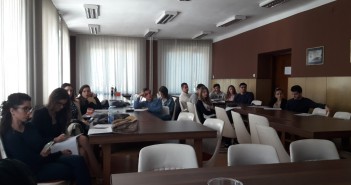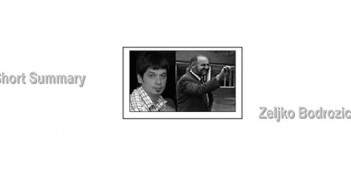Training “Monitoring, Reporting and Specificity of Criminal Proceedings for Crimes With Elements of Corruption” held at Human Rights and Democracy House in Belgrade
On November 6, 2017, Lawyers Committee for Human Rights, with the support of the OSCE Mission to Serbia, held a training “Monitoring, Reporting and Specificity of Criminal Proceedings for Criminal Offenses with Elements of Corruption” at the Human Rights and Democracy House in Belgrade.







